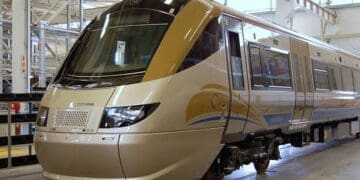The National Treasury’s R402 billion infrastructure investment, announced in the 2025 Budget Speech, is being met with cautious optimism by small businesses in construction, transport and logistics.
For SMMEs like Maysene Logistics, this allocation promises more than smoother roads — it signals improved safety, reduced costs and a longer lifespan for their hard-working fleet.
Reneiloe Semenya, co-founder of Maysene Logistics, welcomed the renewed focus on road infrastructure but urged the government to move beyond the metros.
“We just wish that when we are speaking about road infrastructure, we are not only talking to the big cities, because we cut across various provinces, both large and small towns,” she said.
“If these areas are developed, it means we will have better lighting and security, which is essential for logistics companies like ours that operate around the clock.”
Semenya added that the speed and quality of delivery were critical.
“It’s important that when we roll out infrastructure it’s done with urgency and precision. The roads must be strong enough to handle heavy-duty vehicles. That reduces wear and improves delivery efficiency.”
This investment, which forms part of the country’s broader infrastructure-driven economic recovery strategy, is not only about fixing roads and upgrading rail lines. It is a direct economic opportunity for SMMEs ready to meet the demands of large-scale development projects.
Finance Minister Enoch Godongwana announced that R93.1 billion has been allocated to Sanral for national road network maintenance, while R53.1 billion is set aside for upgrading provincial roads.
The Passenger Rail Agency of South Africa (Prasa) will receive R66.3 billion to renew rolling stock and signalling systems, and improve affordable rail transport, particularly for low-income commuters.
Each of these initiatives opens avenues for smaller companies to be part of the solution.
“Infrastructure is also a rich source of jobs in construction, engineering and related industries across a range of skill levels,” the minister noted.
This is promising news for emerging contractors, transporters and suppliers.
The government’s shift toward investment over consumption signals strong support for businesses offering local solutions.
SMMEs can benefit through tenders, joint ventures and equipment supply, while improved infrastructure will ease market access and boost job creation.
Public-private partnership reforms and streamlined regulations will also make it easier for small businesses to participate in national projects.
While road and rail infrastructure received considerable attention, SMMEs in the maritime space remain concerned about being left behind.
Unathi Sonti, executive chairperson of the Maritime Chamber Council, believes the budget overlooks the potential of South Africa’s ocean economy.
“If you look at the budget and how it is structured, it talks mainly to roads and rail. It does not necessarily talk to the betterment of ports or marine-related activities,” he said.
Sonti said the government needed to implement the Comprehensive Maritime Transport Policy and invest in compliance support for SMMEs.
“We’ve got a number of competent and capable small businesses. But maritime operations require adherence to international standards. If the budget can support those who don’t yet meet them, we would see greater participation.”
He warned that without intentional maritime investment, many businesses would remain excluded from port and shipping contracts dominated by large corporations and state-owned enterprises.
Meanwhile, Kabelo Makhubela, a Town and Regional Planning graduate, is optimistic about the benefits for small businesses.
“I think to take advantage, SMMEs should register on the Central Supplier Database, stay compliant, monitor tenders and seek support from agencies like Seda and the IDC,” said Makhubela.
“It’s not just about profits — we’re talking about jobs, mentorship and changing the landscape for black-owned construction companies.”































































